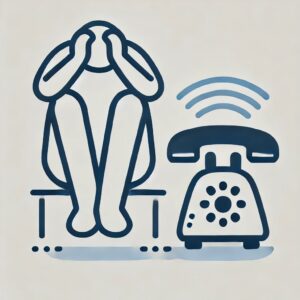 Can Creditors Come After Me Over Student Loans?
Can Creditors Come After Me Over Student Loans?
If you’re struggling with student loan debt, you’re not alone—and you may be wondering just how far creditors can go to collect what you owe. Unfortunately you may find creditors and student loans go hand-in-hand.
The short answer is yes, creditors can come after you over student loans, but what they can do—and how you can protect yourself—depends on the type of loan and your financial situation.
As a bankruptcy lawyer, I talk to people every day who are overwhelmed by student loan debt. Some are getting nonstop phone calls. Others are worried about wage garnishment or losing their tax refunds.
Let’s walk through what creditors can and can’t do, and what your options are if you’re falling behind.
 Private vs. Federal Student Loans: What’s the Difference?
Private vs. Federal Student Loans: What’s the Difference?
Federal student loans are backed by the government, while private loans are issued by banks, credit unions, or other private lenders. This matters, because different rules apply depending on the type of loan you have.
Federal loan collectors (like the Department of Education) don’t have to sue you to start garnishing your wages or seizing your tax refund—but they do have to follow strict legal procedures.
Private student loan creditors, on the other hand, usually have to take you to court first. If they win a judgment against you, they can pursue wage garnishment, bank levies, or even liens on your property in some states.
What Can Creditors Actually Do?
Depending on the type of loan you have, here’s what creditors are legally allowed to do if you default on student loans:
Call You Constantly
They may call frequently, but they still have to follow the Fair Debt Collection Practices Act. That means no calls before 8 a.m. or after 9 p.m., and no threats or harassment.
 Report the Debt to Credit Bureaus
Report the Debt to Credit Bureaus
Falling behind on payments can seriously damage your credit score. If this happens to you, check out our free report on rebuilding your credit to an A rating, even after things like debt damage it.
Garnish Your Wages
Federal loan servicers can garnish your paycheck without suing you. Private lenders have to go to court first. But either way, they both have this option through official channels.
Seize Your Tax Refund or Federal Benefits
This often comes as a surprise to a lot of people. But it only applies to federal student loans in default.
Sue You
While the government may have easier access to funds like your tax refund or benefits, private lenders can file a lawsuit to collect what you owe.
If a private lender wins a judgment against you, the court can allow them to take further action. That might include garnishing your wages, freezing your bank account, or placing a lien on your home.
 Can Bankruptcy Help with Creditors and Student Loans?
Can Bankruptcy Help with Creditors and Student Loans?
You may have heard student loans can’t be dealt with in bankruptcy.
It’s true that, as of now, student loans are harder to discharge in bankruptcy than other kinds of debt. There’s one big exception: if repaying your loans would cause undue hardship, you may be able to have them discharged through a process called an adversary proceeding. However, this option usually applies to really extreme situations, like sudden and permanent disability.
But that’s not the only way to deal with debt issues.
Even if you can’t wipe out your loans completely, bankruptcy can still stop collection efforts temporarily, give you breathing room, and help you manage other debts. We’ve helped countless people deal with their student loans by helping them tackle their other debts first.
What Should You Do If You’re Being Targeted?
If creditors are coming after you over student loans:
- Don’t ignore it – That only makes things worse.
- Figure out what type of loan you have – Your options depend on whether your loan is federal or private.
- Keep a record of all creditor contact – Especially if they’re being aggressive or violating your rights.
- Talk to a bankruptcy lawyer – Even if you’re not ready to file, I can help you understand your rights and your next steps.
We also offer a free report called Creditors Can’t Do That! It outlines some of the tactics creditors use that break the rules or even violate your rights. And it explains all of your options when they cross the line.
 You Don’t Have to Face This Alone
You Don’t Have to Face This Alone
Student loan debt can feel like it’s never-ending—but you do have options. Whether you’re facing lawsuits, garnishments, or nonstop calls, you don’t have to live in fear of creditors forever.
Reach out today to talk about your situation.
I’ll help you explore every legal tool available, including bankruptcy, to stop harassment and take back control of your financial life.
